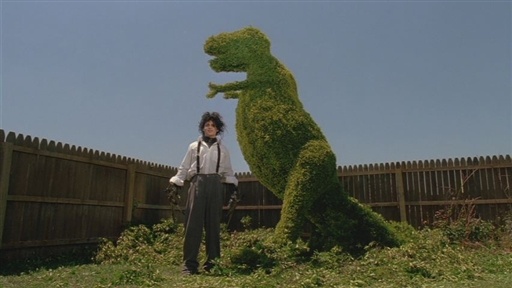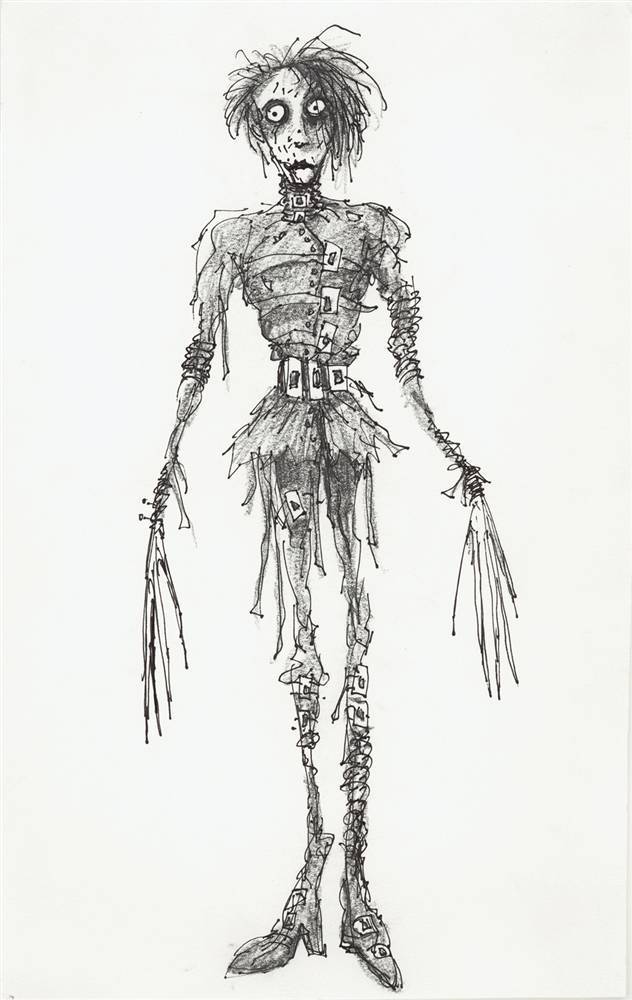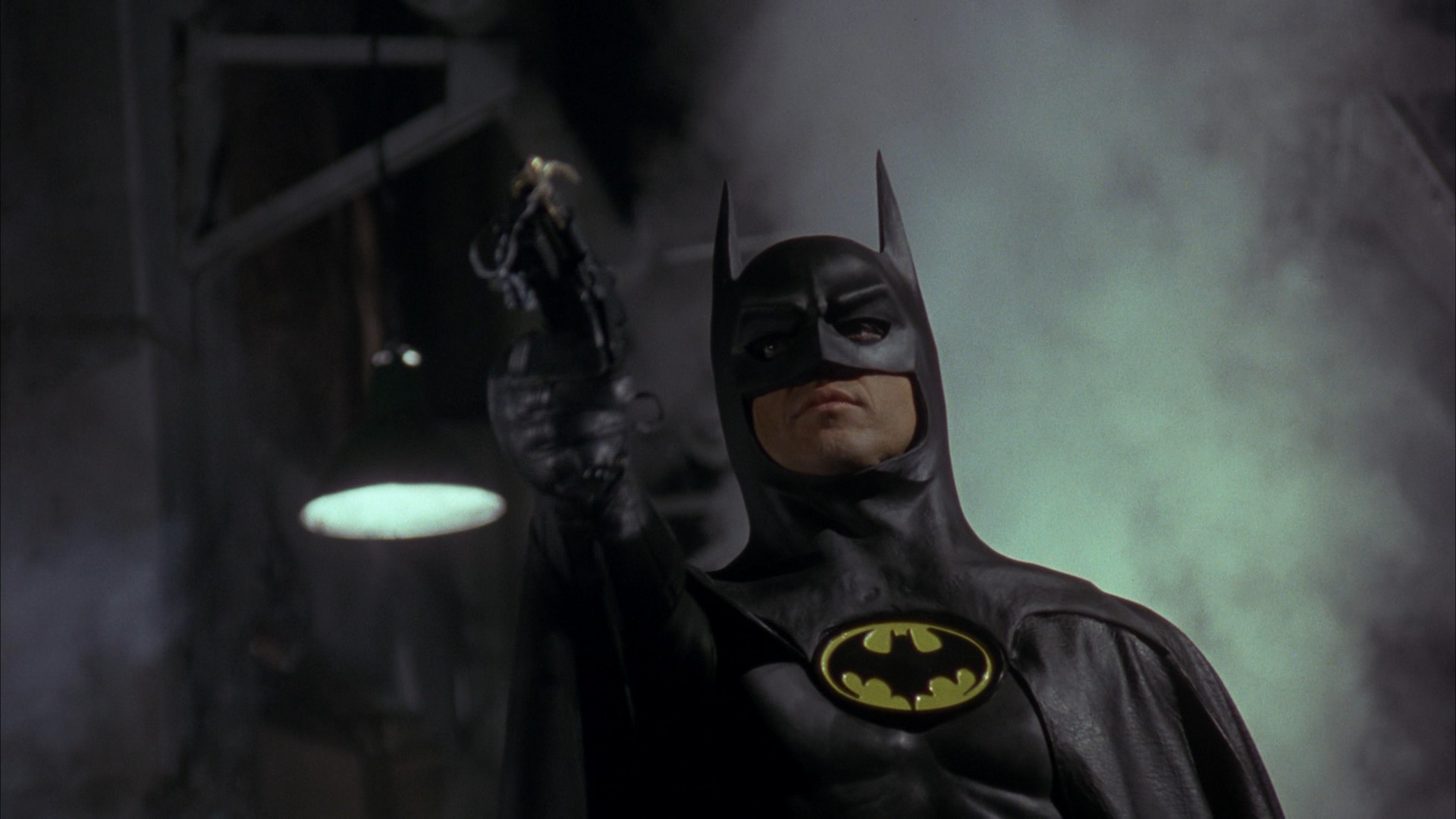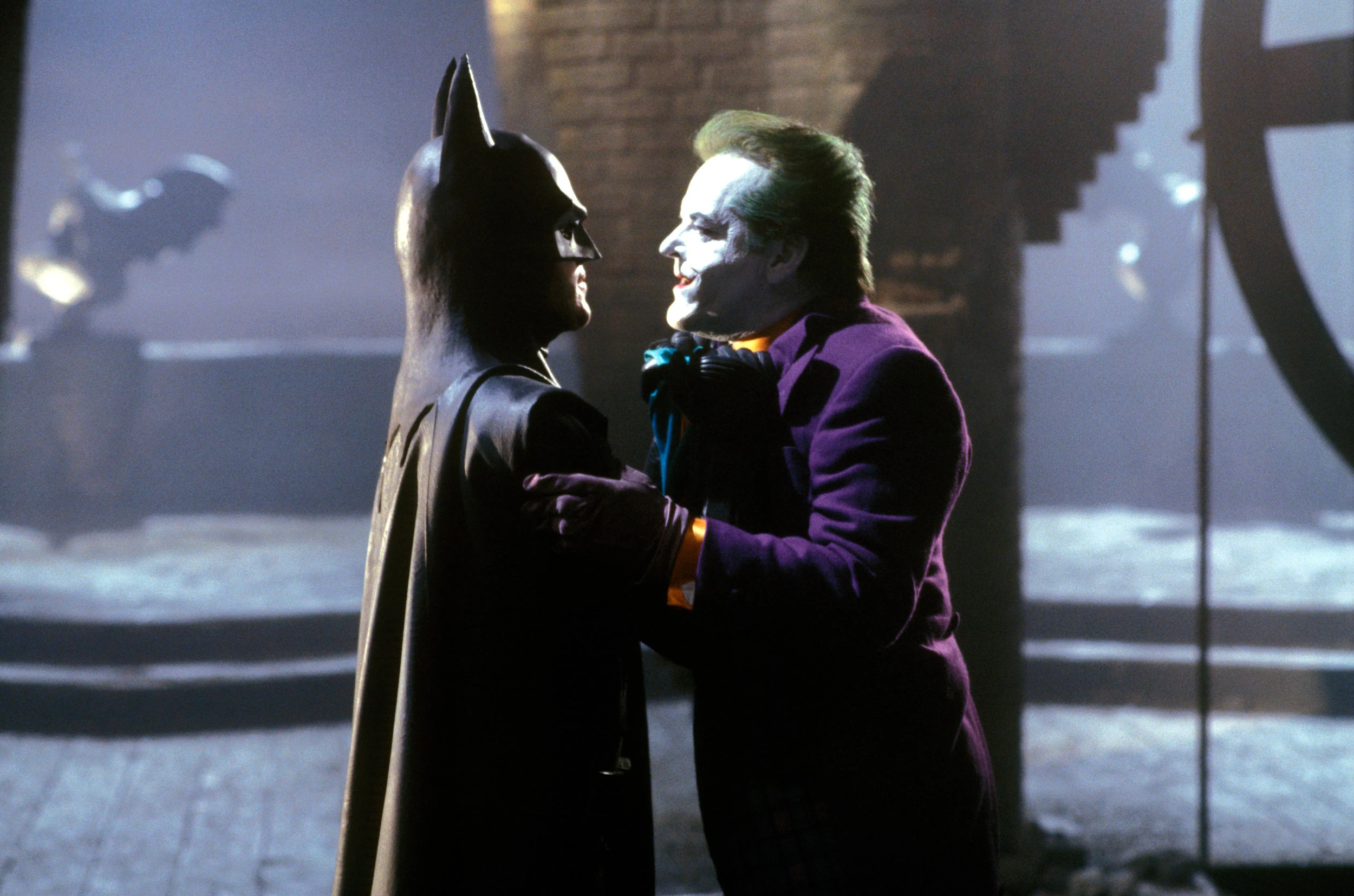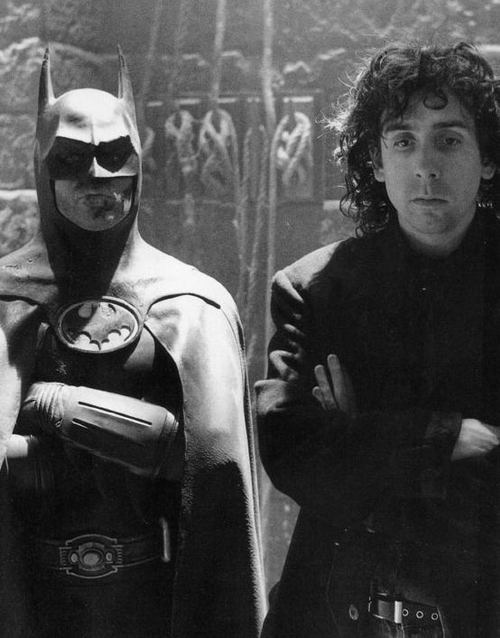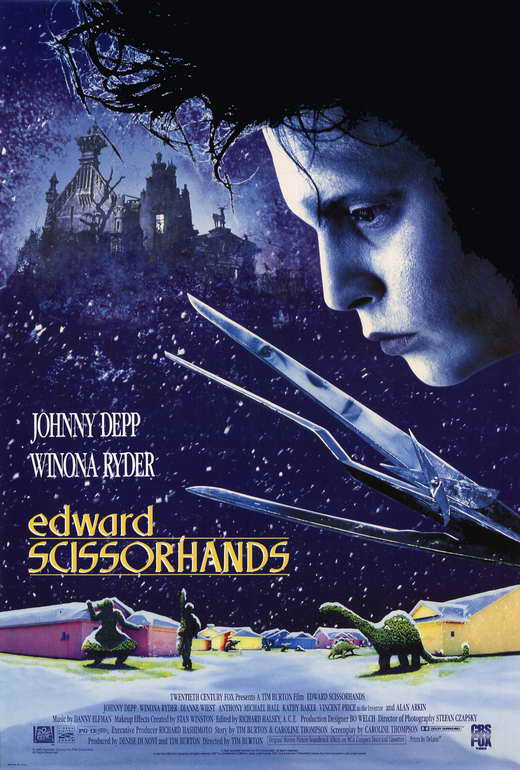
You probably know the story of Edward Scissorhands by now. And if you don't, you at least recognize the unforgettable images or have heard Danny Elfman's equally unforgettable score. A lonely inventor creates a man but dies before he can finish him, leaving the man with only scissors for hands. When an innocent Avon lady accidentally discovers him, she brings him home to her small suburban neighborhood, where he becomes very popular among the bored townsfolk.
Johnny Depp makes his Burton debut as the titular Edward Scissorhands. Known primarily as a teen heartthrob from 21 Jump Street and A Nightmare on Elm Street, Depp curls inward as the shy, misunderstood character. Depp speaks less than 170 words in the entire film and yet his performance is clear and touching.
Dianne Wiest plays Peg, a devoted wife and caring mother, but also a door-to-door makeup salesperson. In many ways, she is similar to Edward. She's optimistic and eternally kind despite being continually downtrodden and disrespected by her neighbors. She is married to Alan Arkin, who could not be more All-American Dad if he tried.
In any love story, you need a love interest. Kim, played by Winona Ryder is a girl next door type whose teenage attitude makes her fear Edward and reject him as a freak. However, she has a good heart and a patient spirit like her mother and finds herself warming to him, much to the annoyance of her boyfriend Jim, played by Brat Pack alum, Anthony Michael Hall. He plays a jock who treats Edward like a child and pretends, in his own callous way, to be friends with him.
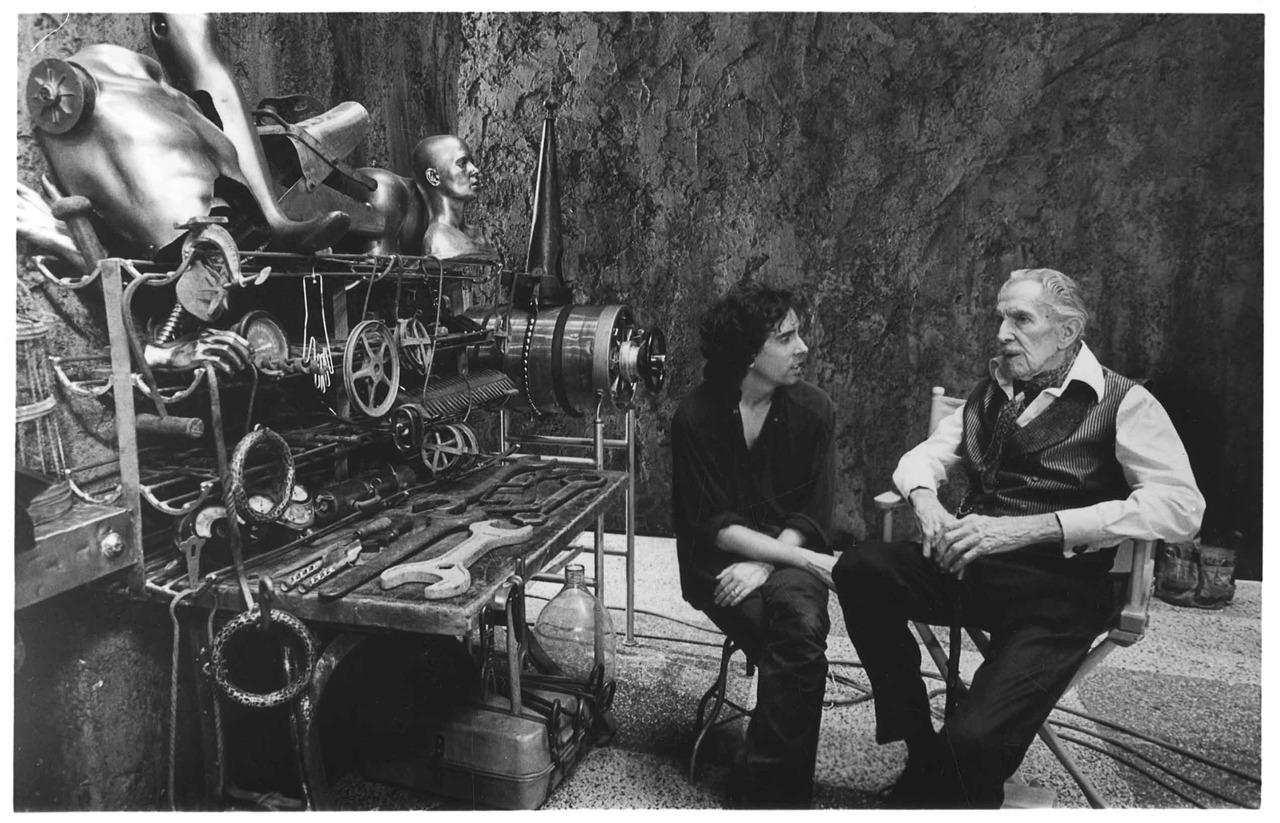
And finally, there is the lonely Inventor played by Vincent Price. He is inspired to invent Edward while looking at a cookie baking machine of his own creation. It's that kind of movie. His role was expanded in the script, but Price was very old, and his battle with emphysema and Parkinson's meant that most of his scenes were cut. Fittingly, the last scene he shot for the film, that of his death, would be the last thing Price would film in his life. He passed away shortly thereafter but his role in this movie, however brief, is charming and endearing.
This may be the most Tim Burtony movie of all time. It is the perfect confluence of his talents. Once again, his American heritage mixes with his German influences, and while they merged smoothly in Batman, here they clash but they clash beautifully. Edward Scissorhands exists in a reality slightly skewed from ours. Peg's pink Avon uniform stands out vibrantly against the gothic castle. Edward's pale skin and gravity defying hair make him stick out like a sore thumb amongst the clean cut "normal" people that surround him. His contempt for the American suburbs is fully on display here as well. The houses are painted in garish Easter pastels and all the men leave for work at exactly the same time, but there is also a scary, dark castle atop a scary, dark mountain that comes out of nowhere. If it weren't for the fairy tale elements of this movie, one could argue it is riddled with plot holes and marred by dramatic simplicity but it totally works. If you wonder where Edward gets the blocks of ice, you're asking the wrong questions.
One of the deeper, darker concepts this movie explores is our relationship with phenomena. Edward is treated with admiration and curiosity but he's nothing more than a novelty to most of the town. These people are terribly bored. To them, he is something to gawk at, and when he doesn't behave the way they want him to, he's something to fear. They are more than happy to believe that he is a thief, a sex offender, and even a murderer despite all evidence to the contrary. Even Peg, the well-meaning mother, is corrupted by Edward's presence. As Edward becomes more and more popular, she starts to use him as a means of increasing her social value.
In a deeply troubling scene, Peg sits with Kim and admits that she should never have brought Edward down from that castle. That their lives would have been better if he had just stayed up there forever. Its upsetting because even Peg, one of Edward's most passionate defenders, thinks its better for Edward to be locked away in desperately lonely isolation, instead of hoping that others will grow to acknowledge and love him as they do. Its a dismissal of humanity's worth as a whole.
The only pure person in this movie isn't Edward, its the Inventor, a man who created life out of the emptiness in his heart. Edward is a child and can be molded as one. Left to his own devices, he cuts his face. He hurts everything he touches but longs for human interaction. His very first lines are "don't go." He wants to understand the world around him and sees beauty everywhere, but even he is corrupted by the world he is forced to inhabit. In our culture, he experiences desire and longing, but with it come jealousy and violence. Edward, it seems, is not meant for this world.
